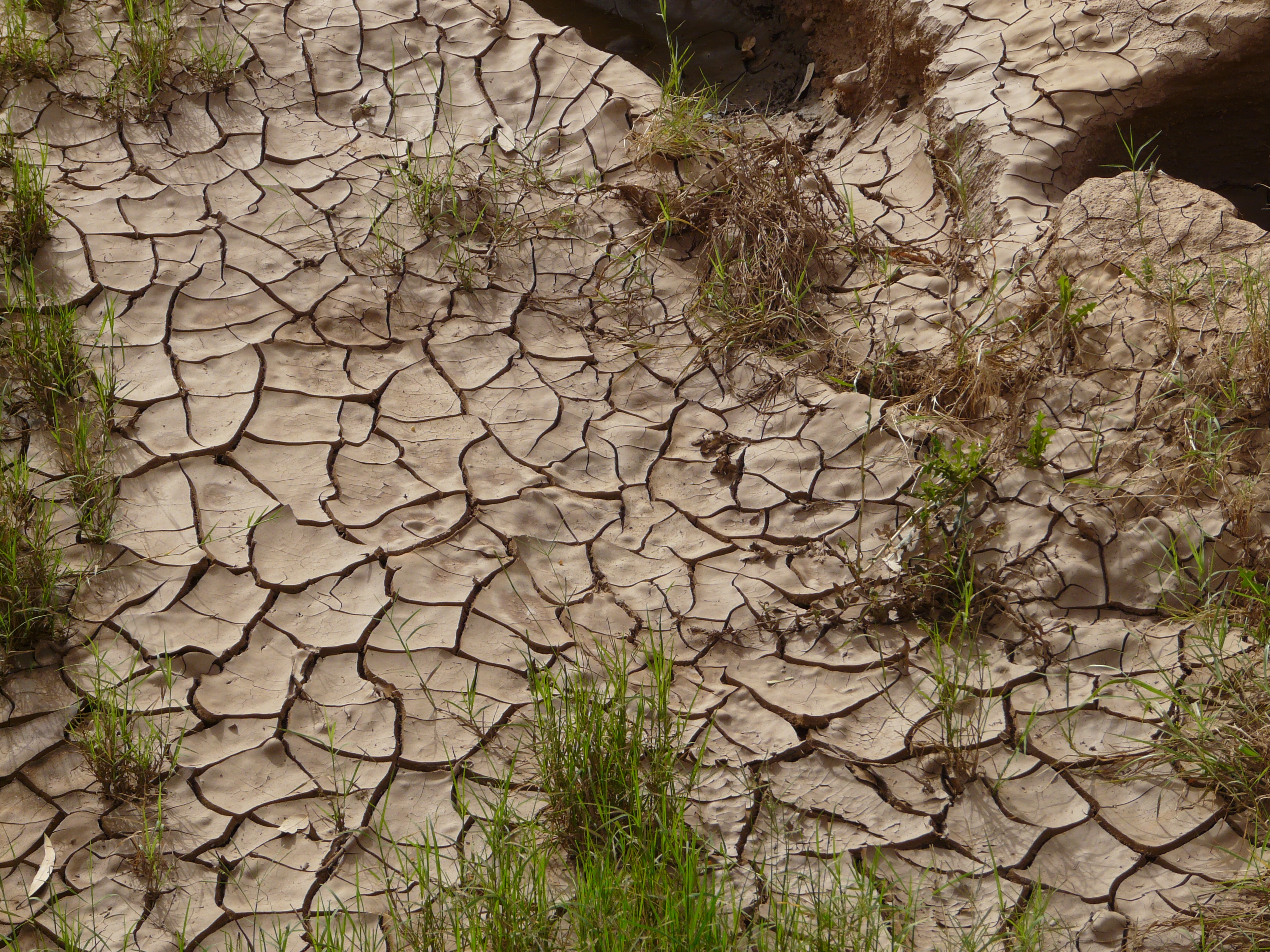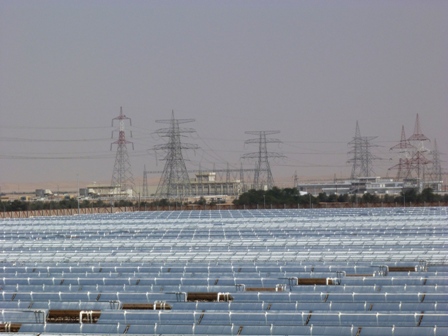Why Africa has to worry about melting Greenland ice

Equi glacier discharging into the sea off Greeenland (Pic. I.Quaile)
Working for an international broadcaster which has Africa as one of its key target groups, I often find it difficult to interest some of my colleagues in what is happening in the Arctic. So my attention was caught instantly when I came across an article by Chelsea Harvey in the Washington Post: A climate chain reaction: Major Greenland melting could devastate crops in Africa.
It is often mentioned here on the Iceblog that what happens in the Arctic doesn’t stay in the Arctic. Melting ice from Greenland’s giant ice sheet is of key importance to sea levels, ocean currents and so our weather and climate, all over the globe.
But the study cited by Chelsea Harvey makes a direct connection between the icy north and a region certainly rarely brought into connection with icy weather: the Sahel zone of Africa.
The study was published on Monday in the journal Proceedings of the National Academy of Sciences. I had to take a look.
Icy Uncertainty
The scientists write: “A major uncertainty concerning the 21st century climate is the ice sheet response to global warming. Paleodata indicate rapid ice sheet destabilizations during the last deglaciation, which could lead to an underestimation of sea level rise, as suggested in recent publications.”
I had that confirmed just last week by Hans Pörtner, from Germany’s Alfred-Wegener-Institute, co-chair of the IPCC Working Group II, which focuses on impacts, vulnerability and adaptation possibilities for humankind under climate change. I met him at a working meeting of the BIOACID group in Kiel, as mentioned in the last blog post.

Greenland’s glaciers are all ready discharging huge amounts of ice into the ocean (I.Quaile)
Worse than we thought
“I think we have increased awareness that previous estimates of sea level rise have been too conservative”, he told me. Looking back at the earth’s history, he said, “we know that during the last interglacial, with 0.7 to two degrees global warming, above pre-industrial – these are the comparable numbers to where we are today – we had around 7 meters higher sea level. And if we compare and look back at the last period in earth’s history where we had 400 ppm CO2 – and that’s also where we are now – we had a similar degree of higher sea level.”
So far, countries have based their adaptation and coastal protection measures on earlier, conservative estimates. They urgently need more data to adapt and protect themselves against likely future climate change impacts.
Disrupting the ocean conveyor belt
Scientists are working on a special report for the IPCC on the ocean and the cryosphere, which Pörtner regards as one of the most challenging aspects of climate science. Ice sheet melt has accelerated over the last few decades. As well as raising sea level, the influx of fresh water could also upset our ocean current system, as the authors of this week’s PNAS study explain:
“The ensuing freshwater discharge coming from ice sheets could have significant impacts on global climate, and especially on the vulnerable tropical areas”, the researchers write. The lead author is Dimitri Defrance from the Institute Pierre Simon Laplace in France.
The scientists looked at the impact of “different scenarios of Greenland partial melting in the very sensitive Sahel region.”

Paradox? Water influx can lead to drought through chainging rainfall patterns.(Pic.I.Quaile
Drought, floods, migration
Given that during the last glacial/deglacial period, “megadrought” episodes were observed in the Sahel region at times when there were massive iceberg surges and so large freshwater discharges, the researchers wanted to find out whether future melting of the Greenland ice sheet could destabilize agriculture in the Sahel zone, which stretches from Mauritania in western Africa to Sudan in the east.
They used models based on future climate scenarios (RCP8.5), which would increase sea level between 0.5 metres and three metres.
The results are alarming: “We first demonstrate that such a melting induces a drastic decrease of West African monsoon precipitation. Moreover, we quantify the agricultural area losses due to monsoon changes. Consequently, we pinpoint a large potential for migration of millions of people in the coming decades. Thus, the ice sheet destabilization provokes not only coastal damages but also large population migration in monsoon area.”
The scientists say the amount of land available for cultivation in the Sahel could shrink as sea level rises. At the same time, crops will need more water with temperatures rising, but rainfall would be decreasing.
So, the study concludes, “without any adaptation measures, tens to hundreds million people could be forced to leave the Sahel by the end of this century. On top of this quantification, the sea level rise impact over coastal areas has to be superimposed, implying that the Sahel population could be strongly at threat in case of rapid Greenland melting.”
Of course, what actually happens will depend on the extent to which we reduce our greenhouse gases. The study works out what could happen if we keep more or less to “business as usual”.

The shift to renewables is not happening fast enough (Pic. I.Quaile)
Oceans and climate on the UN agenda
This week, the first ever UN Ocean Conference has been taking place in New York. Frank Bainimarama, the Prime Minister of Fiji, co-host and also incoming President of this year’s UN climate conference to be held in Bonn, Germany in November, told the influential participants: “climate change poses the biggest threat the world has ever known. And the quality of our oceans and seas is also deteriorating at an alarming rate. They are interlinked, because rising sea levels, as well as ocean acidity and warmer waters have a direct effect on our reefs and fish stocks and the prosperity of our coastal communities.”
Add to that the potentially massively disrupting effect of the influx of freshwater from melting ice sheets on our global weather and climate patterns, and there can be no doubt that what happens in Greenland and the rest of the Arctic is relevant to us all.
2016 was not only the warmest year as far as our planet’s atmospheric temperature was concerned. In its “Statement on the State of the Global Climate 2016”, published earlier this year, the World Meteorological Organisation (WMO)confirmed globally averaged sea-surface temperatures were the warmest on record.
Scientists were surprised at the speed at which sea temperatures have risen. In the last century, the 15 years with the highest ocean heat anomalies have all been within the last two decades, according to data from the United States’ National Centers for Environmental Information (NCEI). And the trend seems set to continue.

Ocean acididification through climate change in focus in New York. (Pic: M.Stiasny)
No alternative to climate action
IPCC expert Pörtner says the writing is on the wall. “We really have to go into ambitious mitigation, if we want to have a chance to keep this under control”.
At the same time, US President Trump is planning to take the USA out of the Paris Agreement. This was the reaction to that from IPCC expert Pörtner:
“Climate change is clearly human made, responsible leadership means that this cannot simply be denied or ignored. I think this is a call for better education and information of the public so that it cannot be misled by bending the truth – and this is what it comes down to.”
He quotes the last report from the IPCC: “Without additional mitigation efforts beyond those in place today, and even with adaptation, warming by the end of the 21st century will lead to very high risk of severe, widespread and irreversible impacts”.
He also mentions another key insight from that body: “climate change is a problem of the commons, requiring collective action at the global scale. Effective mitigation will not be achieved if individual agents advance their own interests independently.”
Carol Turley, Senior Scientist at the Plymouth Marine Laboratory in the UK, has been in New York at the UN conference this week, highlighting the issue of ocean acidification. She told me she was inspired to see that policy makers at the highest level, including the Secretary General of the United Nations , were starting to act on the advice of scientists.
Young German scientist Martina Stiasny from Germany’s GEOMAR institute in Kiel, was in New York to present her research findings on how climate change is affecting fisheries.

GEOMAR scientist Martina Stiasny in New York (Pic: Jörn Schmidt)
Addressing a major conference in the USA, at a time when the country’s President appears to be refusing to listen to science? Martina Stiasny describes Trump’s decision to leave the Paris Agreement as a “major disappointment”. But she takes heart from the widespread movement to press ahead with emissions reductions and a transition to renewable energy:
“The statement that America made by pulling out is of course the wrong message to send to the world”, she told me.
An apt insight, in the light of that study on how melting Arctic ice could well cause drought and famine in Africa in years to come.
But the “next generation” scientist is not giving up:
“Fighting climate change is done every day by everyone on this planet and I believe we have no choice but to stay optimistic,” she says.
We need more people like that.















